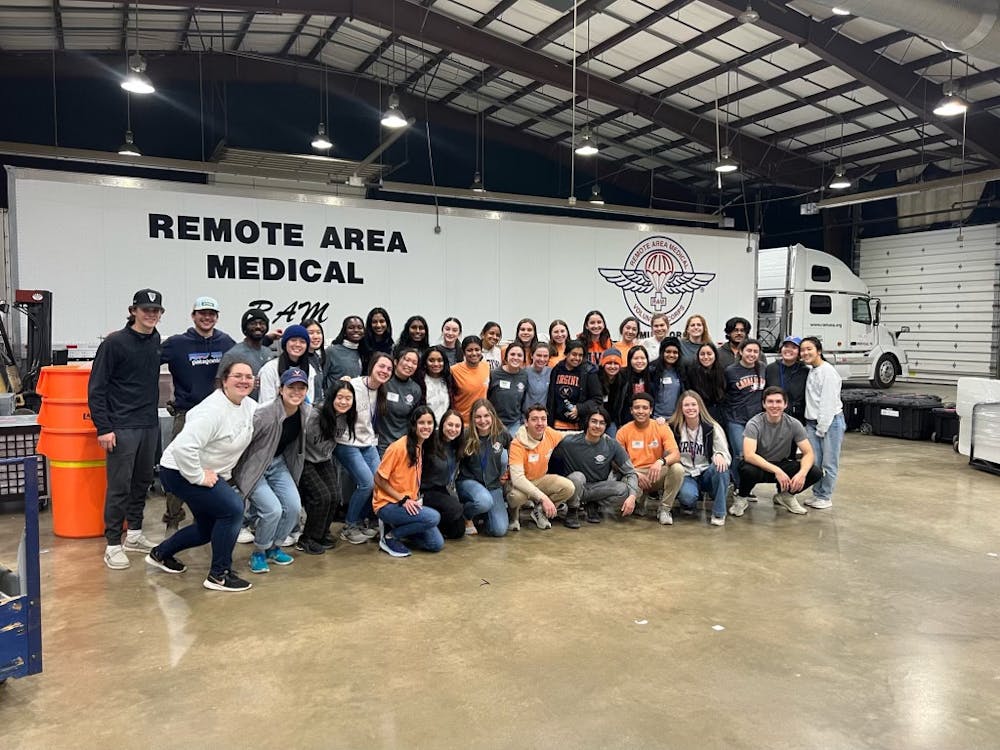According to the US Service Animal & Support Animal Registry’s website, an emotional support animal (ESA) is any animal that benefits the owner by lessening the effects of a psychological illness, such as depression and bipolar disorder. ESAs provide an alternative method of treatment that alleviates symptoms without modifying body chemistry and inducing various side effects commonly associated with medications.
ESAs are not to be confused with service animals.
There are differences between ESAs and service animals. Barbara Zunders, director at the Student Disability Access Center, said in an email statement that while an emotional support animal reduces the symptoms of a person’s disability, a service animal is “covered under different laws ... and is defined under the [Americans with Disabilities Act] as a dog (or in some limited situations, a miniature horse) that has been individually trained to perform a task or work for a person with a disability.”
Zunders said that although the Fair Housing Act covers ESAs, the ADA does not. As a result, ESA owners cannot bring their animal to restaurants, but they can have an ESA in their home.
Under the Fair Housing Act, ESA owners should not experience difficulties in obtaining housing. Landlords cannot charge an ESA owner for having a pet because the Fair Housing Act protects them, Zunders said.
If the owner has a “documented disability, and … An ESA is required to allow for equal access to the dwelling, then an exception to a no-pets policy should be granted,” Zunders said.
In order to obtain an ESA, “An individual must first document that they have a condition which qualifies them as a person with a disability under the ADA, and also be under the care of a licensed mental health provider,” Zunders said. “The mental health provider must certify that the animal is part of a regulated treatment program for the disabling condition.”
Third-year College student Nicky Demitry finds that her ESA has vastly improved her quality of life. She received an ESA recommendation from her therapist, whom she was seeing for assault-related Posttraumatic Stress Disorder. After picking up Arya — a puppy who was going to be put down — from a shelter, Dimitry went through the process of training her to be an ESA.
“For Arya's certification, we had to go through AKC training, namely the Good Citizen Canine training,” Dimitry said in an email statement. “Then we needed an endorsement from my therapist and psychiatrist to get a prescription to be an ESA, and then it was just a good bit of paperwork and certification.”
Dimitry explained that Arya helped her cope with her depressive thoughts when her mom was going through chemotherapy — motivating her to get up in the morning and live her life fully. Despite stressful events, Dimitry has been able to live a more wholesome and happy life because of the sense of security and unconditional love that Arya provides, she said.
“She's very helpful for depression, anxiety, and PTSD support. I've always loved animals but didn't think it would have that profound of an impact on me,” Dimitry said. “She helps calm down panic attacks by sitting on my chest … Even though that doesn't really happen anymore, and keeps me getting up every day.”
Dimitry said the University has been very cooperative, despite its general rule that first years must live in dorms.
“It feels weird to be that dependent on an animal to some extent, but this is my life now and I accept it,” Dimitry said. “Obviously I make arrangements for her when I'm traveling / find jobs conducive to her walking etc. but it's a very easily mitigated responsibility and she is the love of my life.”





